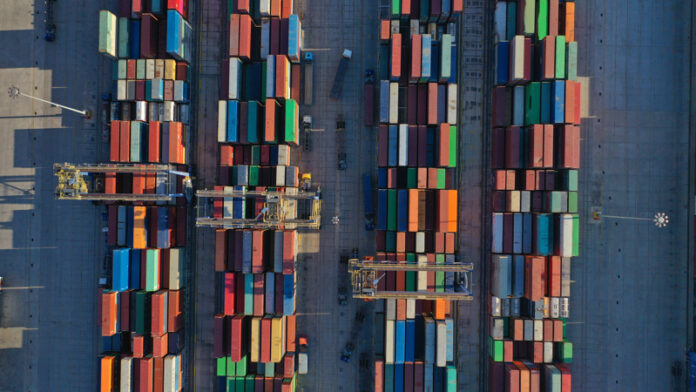Ocean container rates out of Asia continued to fall last week, slipping beneath 2024 lows on a combination of a post-Lunar New Year lull in demand, impacts from the new carrier alliance services still moving into place, and capacity growth.
Asia-Europe prices dipped 11% to US$2,740/FEU, 14% lower than their 2024 floor, and Asia – Mediterranean rates eased 9% to less than US$3,800/FEU, 10% lower than the nadir on this lane last year.
The post-LNY demand slump may be more pronounced than usual on these lanes as shippers stocked up ahead of the holiday to account for Red Sea diversion-driven lead time increases. But rates are falling despite congestion at many European hubs, and some carriers have announced April GRIs in response though March increases were largely unsuccessful.
There are indications of some frontloading-driven demand strength on the transpacific. Eventual tariff rollouts or enough inventory build-ups would put an end to this pull forward and will likely mean a weaker-than-usual second half.
And though the tariff landscape remains extremely uncertain, federal agency findings that could lead to sharp tariff increases on China, reciprocal tariffs on a long list of countries, the USTR’s proposed port fees on Chinese-made vessels, as well as the reinstatement of 25% tariffs on all Canadian and Mexican imports are due in early April. The Federal Maritime Commission also recently opened an investigation into foreign government roles in container chokepoints.
But despite the current relative demand strength, transpacific container rates continued to fall last week as well.
At about US$2,400/FEU and US$3,500/FEU to the West and East Coasts respectively, prices are already 18% below their 2024 lows. In addition to the alliance reshuffle, the current rate weakness on these lanes may also point to fleet growth-driven overcapacity first seen in collapsing rates in 2023 but largely held at bay since early last year by Red Sea diversions’ absorbing capacity.
The expected demand drop when frontloading ends and analyses that – despite the current global benchmark rate still more than 70% higher than in 2019 due to the Red Sea crisis – the market will become oversupplied even if diversions continue may be reflected in reports of transpacific ocean contracts negotiations trending toward rates lower than carriers had hoped.
In air cargo, Freightos Air Index ex-China rates rebounded somewhat last week to above US$5.00/kg to the US and to more than US$3.80/kg to Europe despite some indications that e-commerce demand to North America has started to ease. Transatlantic rates of US$2.43/kg last week were 15% higher than at the start of the year, possibly pointing to some frontloading ahead of expected US tariff increases on European trading partners.
This article was written by Judah Levine, Head of Research at Freigthos







